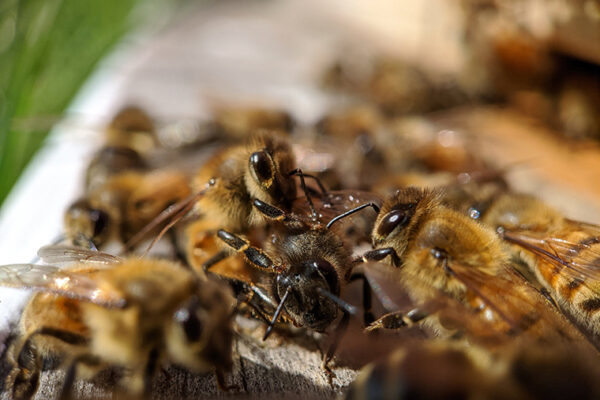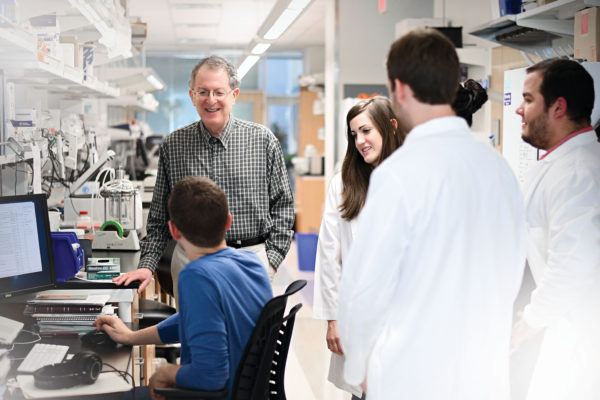‘Honey bee, it’s me’
New research from Washington University in St. Louis shows that honey bees rely on chemical cues related to their shared gut microbial communities, instead of genetic relatedness, to identify members of their colony.
The father of the microbiome
Jeffrey I. Gordon, MD, is expanding our understanding of human health into nonhuman realms, studying the bacteria that take up residence in the gut and help define who we become. Indeed, this research suggests you are what you — and your microbes — eat.
Gordon to receive Keio Medical Science Prize
Jeffrey I. Gordon, MD, the Dr. Robert J. Glaser Distinguished University Professor at Washington University School of Medicine in St. Louis, is a recipient of the 2015 Keio Medical Science Prize.
Mimicking diet changes of global travel reveals clues to gut health
With the growing understanding of the importance of gut bacteria in human health, researchers at the School of Medicine studied gut motility, measuring the transit time of food moving through the gastrointestinal tract in mice in a way that mimicked the dietary effects of world travel. The study demonstrates ways to uncover how even a single ingredient, such as turmeric, can affect health through interactions of diet and gut microbes.
Viruses flourish in guts of healthy babies
Bacteria aren’t the only non-human invaders to colonize the gut shortly after a baby’s birth. Viruses also set up house there, according to new research led by Lori Holtz, MD, at Washington University School of Medicine in St. Louis.
Bacterial flora of remote tribespeople carries antibiotic resistance genes
Scientists, including researchers from Washington University School of Medicine, have found antibiotic resistance genes in the bacterial flora of a South American tribe that never before had been exposed to antibiotic drugs. The findings suggest that bacteria in the human body have had the ability to resist antibiotics since long before such drugs were ever used to treat disease.
Viruses may play unexpected role in inflammatorybowel diseases
Inflammatory bowel diseases are associated with a
decrease in the diversity of bacteria in the gut, but a new study led by
researchers at the School of Medicine has linked these same illnesses to an increase in the diversity of viruses.
Dickson Prize awarded to medical scientist
Jeffrey I. Gordon, MD, has won the 2014 Dickson Prize in Medicine for his pioneering studies demonstrating how the tens of trillions of microbes that live in the gut influence human health.
Students participate in inaugural global health research program
Washington University’s Global Health Center selected five WUSTL students for its inaugural summer research program, which paired students with faculty mentors to explore issues such as malnutrition, maternal health and access to health care. Pictured is program participant Laura Bliss, a second-year medical student.
Gordon wins Passano Foundation Award
Jeffrey I. Gordon, MD, director of the Center for Genome Sciences and Systems Biology, has won the 2014 Passano Foundation Award for his pioneering studies showing how the trillions of microbes that live in the gut influence human health.
View More Stories




